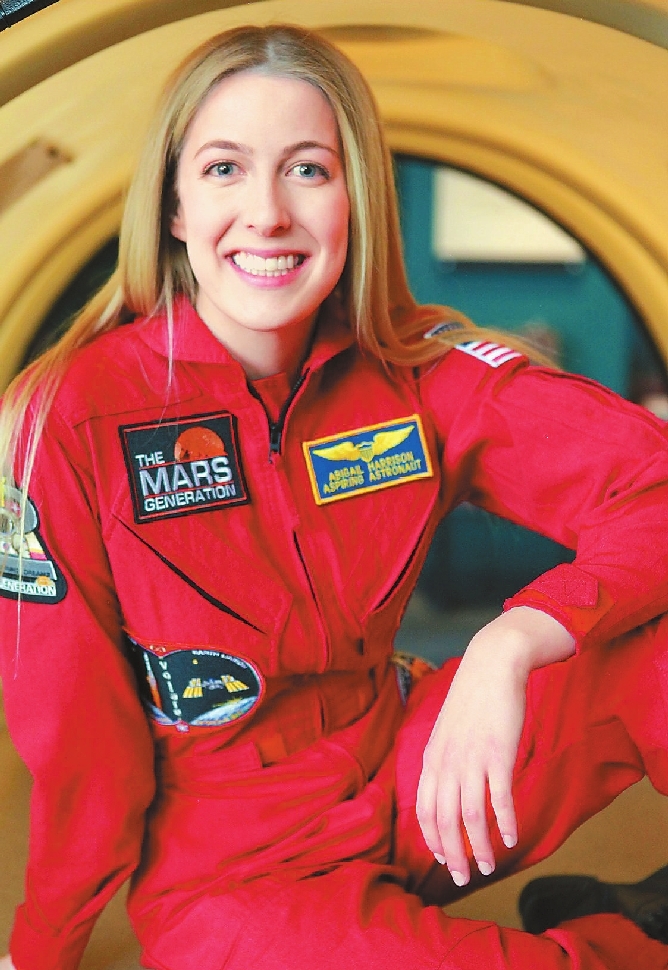
Abby Harrison’s gap year doesn’t look like your gap year. She spends her days hiking, running and rock climbing, and her nights teaching astronomy and stargazing at Teton National Park in Wyoming. Sometimes, she’s not home until 3 a.m. “Doing something I love, and being in an incredibly beautiful place,” she said. “I think it’s one of the best decisions I’ve made in my life.” In the middle of it all, she’s running a nonprofit organization. Harrison, 22, has had just one goal since she was 13 years old: to be the first astronaut to land on Mars. She’s gained global fame for that idea. Since 2011, she’s taken on the moniker Astronaut Abby, an online presence that came from an eighth grade science project, and grew quickly. She was invited to attend the last launch of space shuttle Endeavor. She met the Italian astronaut Luca Parmitano. She gave a TedX talk. Today, she has a substantial social media following, which she uses to inspire other young people to pursue science, technology, engineering and math. Space connects us Her nonprofit The Mars Generation, which she started at age 18, is an extension of her personal goal, with a mission statement positioning the current youth to be the first generation on Mars. Why Mars? To Harrison, the planet is in that perfect spot just outside of our current technology. It’s right there in our realm of possibility. The way Harrison sees it, space is one of the few things that connects us all. “When it comes down to it, exploration is an innate part of who we are as humanity,” she said. “It’s something that draws us together, that throughout history we’ve always been looking over the next corner.” Always in awe The Mars Generation sends kids to space camp at NASA each year. That’s something that was important to Harrison, since her own space camp experience was so instrumental. Harrison was raised in St. Paul, Minnesota, by a single mother, a high school teacher. She was involved in special STEM programs at her school, but space camp, at US$1,000 a week, was initially out of her budget. A local nonprofit helped her raise the money to attend. That was in the back of her mind when she started her own nonprofit. Many kids, she knew, don’t have the opportunity to raise money. In the past three years, The Mars Generation has sent 36 students to camp. A marathon, not a sprint Since starting the nonprofit, Harrison has gotten her pilot’s license, done research in Siberia, worked as an astrobiologist, studied in Russia and even learned ballet. Nearly every decision Harrison has made since age 13 has been geared toward becoming an astronaut. She started college at the University of Minnesota at age 16. But as she got older, she realized that if she was in it for the long haul, she’d have to act like it. Harrison opted to do four full years at Wellesley, to build up her experiences rather than rushing through. After all, astronauts aren’t just piles of accomplishments. They’re well-rounded people with diverse interests and experiences. “I’ve been working towards it for a decade now, and I have easily another decade to work towards it,” she said. “To avoid burnout, and to avoid losing my passion and love for it, I have to take some breaks, and be interested and engaged.” That, in part, inspired the gap year. Aside from using it to gain more experiences (she’ll spend part of the year traveling through China and Russia), she wanted more time to decide on a PhD program — either astrobiology or microphysics. (SD-Agencies) | 
